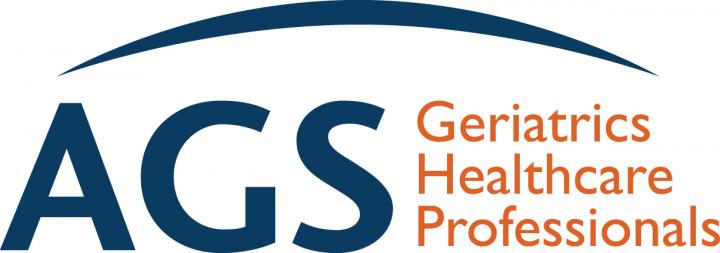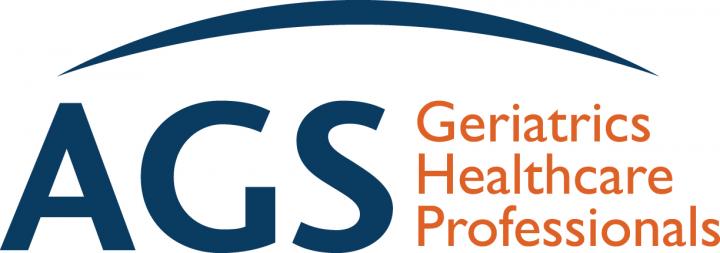
Credit: (C) 2018, American Geriatrics Society
Experts at a prestigious medical conference hosted by the American Geriatrics Society (AGS) and funded by the National Institute on Aging (NIA) hope their work–reported today in the Journal of the American Geriatrics Society–will have colleagues seeing eye-to-eye on an important but under-researched area of health care: The link between impaired vision, hearing, and cognition (the medical term for our memory and thinking capabilities, which are impacted as we age by health concerns like dementia and Alzheimer's disease).(1) With vision and hearing loss already affecting up to 40 percent of older adults(1)–and with one-in-ten older people already living with Alzheimer's disease(2)–the conference reviewed the current state of science regarding how these common health challenges might be connected, why the answer might matter, and what can be done to reduce sensory and cognitive impairments to preserve our health for as long as possible.
"As we live longer, we know that sensory and cognitive impairments will become more prevalent," said Heather Whitson, MD, MHS, Associate Professor of Medicine & Ophthalmology at Duke University Medical Center and one of the lead researchers for the AGS-NIA conference convened in 2017. "While we know a great deal about these impairments individually, we know less about how they are related–which is surprising, since impaired hearing and vision often go hand-in-hand and are associated with an increased risk for cognitive trouble."
One obstacle to optimizing sensory and cognitive health is our poor understanding of the two-way street connecting both.(1) For example, we know the brain relies on sensory input to understand our environment and make decisions.(1) Researchers also know that cognitive processes–such as connections in the brain that allow us to locate visual targets–guide our visual and auditory attention.(1) Yet we have a limited understanding of how these inter-related processes are affected by age-related changes in the brain, eyes, and ears.
Is the connection between sensory impairment and cognitive decline linear, with one health concern leading to the other, or is it cyclical, reflecting a more complex connection? AGS-NIA conference attendees think answers to these questions are critical, which is why their conference report maps the state of sensory and cognitive impairment research while also outlining important priorities for future scholarship and clinical practice. These include answering questions tied to the mechanics, measurement, and management of impairments:
* Identify the Mechanisms Responsible for Sensory and Cognitive Impairments (and Their Connections)(1)
** Is there a cause-and-effect relationship between cognition, vision, and hearing?
** What biological factors or characteristics of our nervous system affect both sensory and cognitive health?
* Better Equip Clinicians and Researchers to Measure Forms of Sensory and Cognitive Impairment(1)
** What standards currently exist for measuring sensory impairment and cognitive decline? How are they used among diverse populations, particularly those who might already struggle with access to health care?
** How can we develop and validate new tools and protocols to measure cognition for people who also live with vision impairments, hearing impairments, or both? Similarly, how can we better measure hearing and vision health in older people managing cognitive health concerns?
** How can we work to ensure broad measures of cognitive and sensory impairment are included in existing research studies as a way to better adapt findings to the realities of older-adult health?
* Better Prepare Older Adults and Health Professionals to Address Sensory and Cognitive Impairments(1)
** How effective, feasible, and accessible are existing options for assisting older people living with cognitive impairments, hearing impairments, and/or vision impairments?
** What innovations will be necessary to develop new resources, tools, and protocols to improve cognitive and sensory health or to accommodate those who live with these health concerns?
"The evidence we have at present indicates that impaired vision, hearing, and cognition occur more often together than would be expected by chance alone," summarized Frank Lin, MD, PhD, Associate Professor of Otolaryngology-Head and Neck Surgery at Johns Hopkins Medicine and another lead researcher at the AGS-NIA conference. "Figuring out why–and what can be done about a potential link–represents a critical new leap for the care we all will want and need as we age."
This research was supported by the NIA of the National Institutes of Health (NIH) under Award U13AG054139. The content is solely the responsibility of the authors and does not necessarily represent the views of the NIH.
AGS ACTION POINTS
* As more of us live longer, impaired vision, hearing, and cognition must remain high-priority agenda items for the future of our care. Beyond understanding these health concerns individually, we also need a better grasp of what might link them, since impaired hearing and vision often go hand-in-hand and are associated with an increased risk for cognitive concerns.
* Researchers and those who fund scholarship on aging should prioritize studies that (1) explore the mechanisms responsible for sensory and cognitive impairments, (2) give clinicians a better sense of how to measure these impairments, and (3) help older adults and health professionals better manage these concerns while promoting health, safety, and independence.
* Older adults, caregivers, and health professionals concerned about sensory and cognitive impairments can take steps to promote well-being by making a discussion about changes in vision, hearing, and cognition a routine part of care. Trusted health resources can help everyone stay informed about how these concerns impact health, and advocacy to legislators is an important way to increase funding and attention for related research.
###
About the American Geriatrics Society
Founded in 1942, the American Geriatrics Society (AGS) is a nationwide, not-for-profit society of geriatrics healthcare professionals that has–for more than 75 years–worked to improve the health, independence, and quality of life of older people. Its nearly 6,000 members include geriatricians, geriatric nurses, social workers, family practitioners, physician assistants, pharmacists, and internists. The Society provides leadership to healthcare professionals, policymakers, and the public by implementing and advocating for programs in patient care, research, professional and public education, and public policy. For more information, visit AmericanGeriatrics.org.
REFERENCES
1 Whitson, H.E., Cronin-Golomb, A., Cruickshanks, K.J., Gilmore, G.C., Owsley, C., Peelle, …, & Lin, F.R. (2018). AGS and NIA Bench-to-Bedside Conference: Sensory Impairment and Cognitive Decline in Older Adults. Journal of the American Geriatrics Society. Advance online publication. DOI: 10.1111/jgs.15506.
2 Alzheimer's Association. (2018). Facts and Figures. Retrieved from https://www.alz.org/alzheimers-dementia/facts-figures.
Media Contact
Daniel E Trucil
[email protected]
212-822-3589
@AmerGeriatrics
http://www.americangeriatrics.org/
Original Source
https://www.americangeriatrics.org/media-center/news/could-links-between-our-senses-cognitive-health-explain-parts-how-we-age-experts http://dx.doi.org/10.1111/jgs.15506





